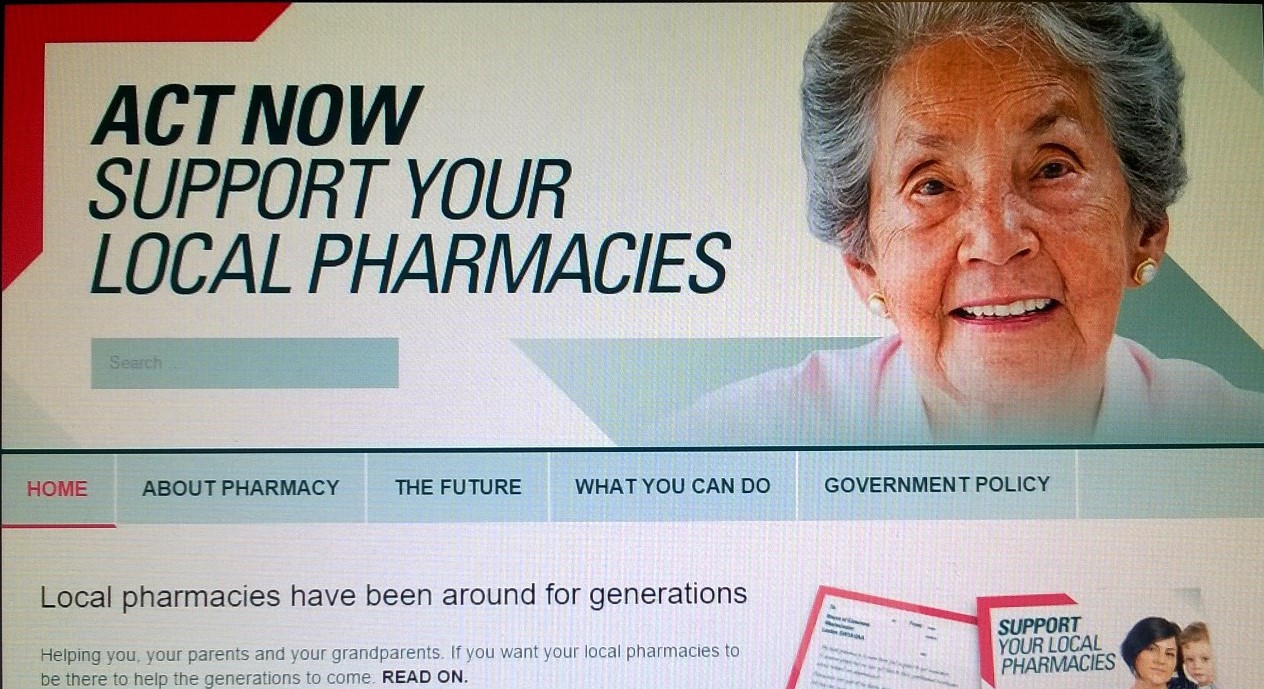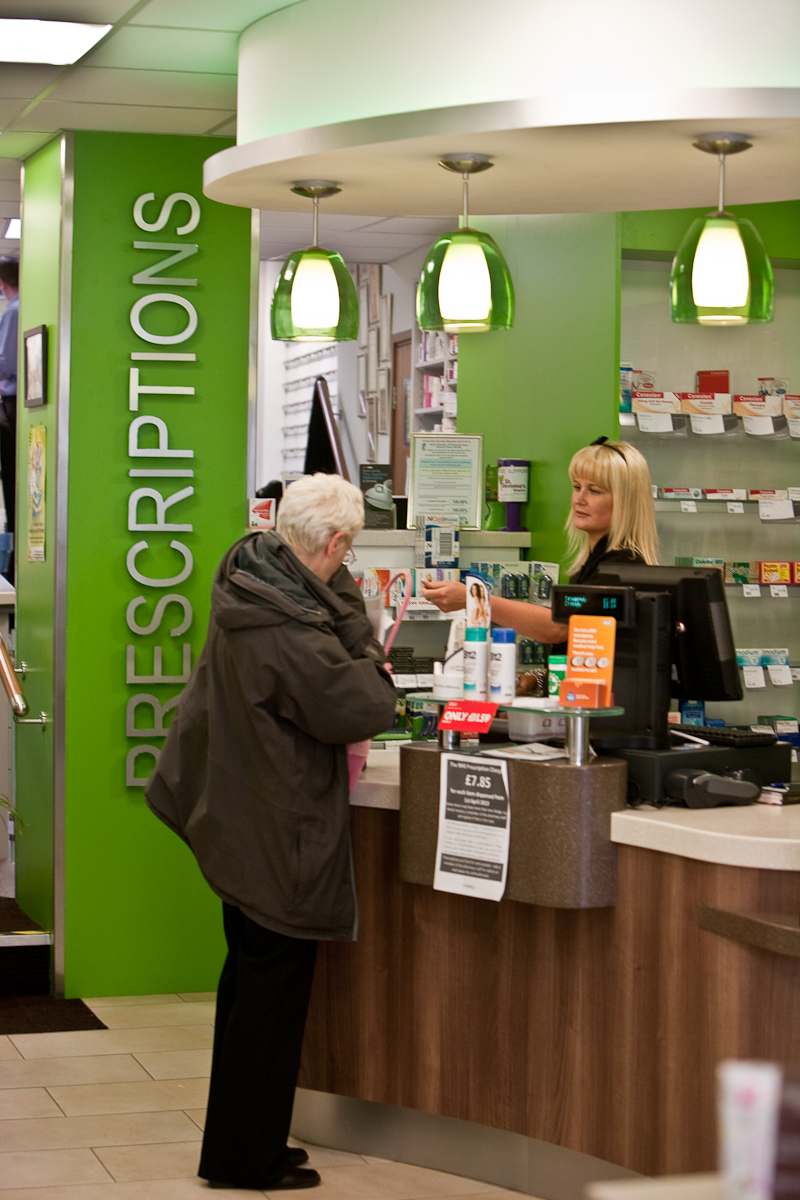Chief Officer’s Blog
“Why our successful pharmacy minor illness referral scheme pilot is being extended to three new areas.”
“Three further Pharmacy Integration Fund Digital Minor Illness Referral Service pilots are due to be launched by early autumn 2018, in Devon, London (in a phased approach), and East Midlands.”
This is very exciting news and is the result of some hard lobbying by Pharmacy London behind the scenes to have secured this for London. Now it is up to London contractors to deliver on this service and ensure the success of other pan London services. I really do not have the confidence or I am yet to be convinced on locally commissioned services because they are not viable, do not contribute to the return on investment and in some cases the bidding process is extremely expensive.
_____________________________________________________________________________________________________________________
I have been a reluctant user of NHS services recently and what strikes me the amount of time spent by patients waiting, as the clinicians struggle to meet the demand. And you can expect to wait anywhere from one to four hours before being seen by the clinicians. I compare and contrast that with the amount of time that is spent by community pharmacy patients for their prescriptions, it can be literally minutes. In the waiting rooms I saw the expectation that patients had-they knew they would have to wait. BUT in pharmacy we have build the expectation that you don’t have to wait, we have lost the time to add value to the service we provide. Medicines are complex and we need to work with the Pharma’ Companies to ensure that they are used appropriately. This is perhaps one of the reasons that MUR and NMS uptake suffers, whilst I and the other patients were reluctantly resigned to waiting to see the doctor when he/she was free. I am not offered the same level of space when I conducting an Advanced or Enhanced services. Slowly but surely we need to change the way we handle prescription or before long it will be taken away from us!
________________________________________________________________________________________
When attending the many meetings any LPC Officer is often obliged to attend, the chats before and after the meeting can be very informative. Recently a week ago I was chatting to a rather senior CCG Officer and asking his opinion about co-commissioning. His response was PCT minus Public Health which was a very small part of the PCT remit. It seems the Langsley reform are slowing being reverted back to where we were in the 2000’s and all we’ve managed to do is weaken the NHS and spent a lot of money in the process. There are major concerns about the conflict of interests about commissioners also being providers that somehow everybody forgets! There is a noticeable migration of quality staff from the NHS into CCG co-commissioning positions which is rather worrying from community pharmacy commissioning.
___________________________________________________________________________________________________________________________
During the General Election much was made of the NHS and in whose political hands the NHS is safe in, perhaps the NHS is safest in the hands of us, the general public. I came across an interesting quote “Health Education England spends £5bn educating clinicians, but nothing educating patients.” Maybe, just maybe we need to start educating the general public about the benefits of staying healthy and this education has to start at all levels but if it is to have any impact it surely as to start in schools, in primary schools. There is a funding gap in the NHS, we all know it is there and the only way to plug it is for all of us to use less and less of the NHS. So how do we start? Perhaps a simple commitment to exercise for 30 minutes a day, eat a bit healthier, drink a bit less, stop smoking, walk rather than drive and take the stairs instead of the lift. If we as health professionals commit to little changes then perhaps we can encourage those that visit our pharmacies. The old adage of physician cure thyself rings true and should also extend to the whole pharmacy team vaccinating themselves for flu this winter. Think of the potential savings to the NHS.
___________________________________________________________________________________________________________________________
The massive failure of EPS R2 last weekend was reminder, if one was needed that our dependence on technology has to be tempered with fail safe backup systems. My confidence in EPS R2 is rapidly evaporating especially with EPS R2 prescriptions getting lost in the system which last Monday was compromising patient care. And it took a great deal of debate with the system supplier for them to allow me to have the necessary “Daily Administrative Key” to be able to identify the patients via the EPS R2 Tracker website https://portal2.national.ncrs.nhs.uk/prescriptionsadmin The EPS R2 prescription then downloaded as “with another dispenser” which was the nominated pharmacy! Using Daily Administrative Key and the FixMe function the EPS R2 prescription was sent back and then downloaded again using the patient prescription identifier from the tracker website. I must have done this a dozen times on Monday and all the while dealing with the normal Community Pharmacy issues and with the dispenser away on annual leave! At the end of the day, walking back to the car I looked fondly on my early days when patients brought in their prescriptions and their expectations were different and more accommodating. Just then I dropped my phone and cracked the screen, Then my whole world went into meltdown!
___________________________________________________________________________________________________________________________
At my local temple I saw one of the elderly members of the congregation using her inhalers rather improperly and together with another pharmacist friend we managed to talk to her about her asthma and inhalers. It came as a surprise that she had not been offered a MUR at all and her inhaler technique was so poor. In addition, she was using the Salbutamol Easi-Breath without the top and using it as conventional MDI. It was little wonder she was so breathless!
On a separate occasion, a close relative asked me why his brown doesn’t work. On questioning him it became very apparent that he viewed his blue (Salbutamol) as working because it provided immediate relief! He also had not been offered a MUR to help him understand the importance of steroid inhalers in asthma. What was really disappointing was that he visited his GP, who kept increasing the dose and at no time had any healthcare professional asked him 1) did you use the the inhaler? and 2) how do you use it?
So on two occasions, I provided impromptu MURs which would not have been recorded with the relevant feedback for the GP. I did advise both of them to visit their respective pharmacy for an official MUR so that it is firstly recorded, the appropriate intervention made, payment made and most importantly a positive outcome for the patients: no more episodes of unnecessary breathlessness.
___________________________________________________________________________________________________________________________
There is a timely reminder in a national newspaper regarding the importance in keeping patient data absolutely secure. Once trust is eroded within an organisation it can prove to be very difficult gain it back. The Information Governance Level 2 requirements were just complete yesterday and it is my sincere hope that all BBG Pharmacy Contractors have completed their IG requirements because first and foremost we are hear to help our patients. This allegation has caste a shadow over the whole profession and I hope it is investigated swiftly to restore the confidence of the public in Community Pharmacy.
The lesson for each BBG contractor would be look over their processes and ensure that all patient data is kept secure and to remind all members of the pharmacy team of the importance of confidentiality when it comes to dealing with patients and customers.
___________________________________________________________________________________________________________________________
There has been a considerable debate within the London LPCs regarding the news that pharmacists should be working with GPs. As my colleague from Croydon LPC is fond of reminding us that this concept has been talked about since the dawn of the NHS! But will never be put into practice because of the imbalance in the power of the health professionals.
___________________________________________________________________________________________________________________________
The National Audit is with us at long last. Perhaps this is the first pharmacy audit that will truly and accurately illuminate the amount of work pharmacist due to ensure that patients do not go without their medicines. It is imperative that all contractors engage withe audit and I have sent out an email as a suggestion for all BBG pharmacist to conduct either period 1 or period 2 of the audit. I am looking forward to presenting this data to CCGs and putting a monetary value on it because I don’t think they appreciate the input pharmacists have on a daily basis for patient care.
___________________________________________________________________________________________________________________________
No such thing as a free lunch! So why is it that so many community pharmacists offer free services? Free collections, deliveries and MDS provided at no cost. But for every service this is a cost element and normally this always goes upwards. For example, free deliveries now require protocols, DBS checks for driver, special arrangements for fridge lines and Controlled Drugs. All these are costs to the pharmacists and what I have found is if you’re going to offer a quality service there is always a cost to it. I have no problem with free services but I would like Bexley, Bromley and Greenwich Community Pharmacists to aspire for better funded services which allows us to invest in more services for patients.
___________________________________________________________________________________________________________________________
Very interesting meeting with a senior Public Health figure chatting about the squeeze on funding for services. The general outcome was that Public Health departments are very much subject to the political pressures of the day. I think that as pharmacists we have to start looking afresh and look at funding from grants for innovation or other sources such as working with partnership with Pharma companies. Pharmacists need to start to think more positively and explore the options of grants and start new services and put yourself forward for awards. I spoke to a colleague from across London who has a “blogger” highlighting his pharmacy services linked into Facebook and Twitter, this is an excellent way to market his services to young people and “grey suffers”….dare I say it… like myself!
___________________________________________________________________________________________________________________________
*The Chief Officer’s Blog is intended to start pharmacists and other healthcare professionals to start thinking about patient services. It is meant to stimulate debate and for pharmacists to engage with the LPC. The views are personal and should be viewed as such.



